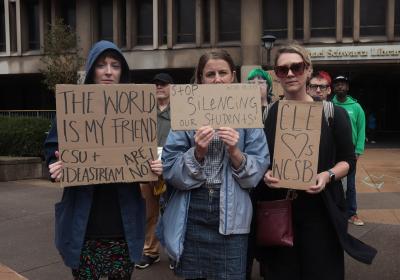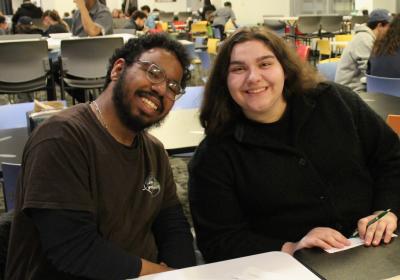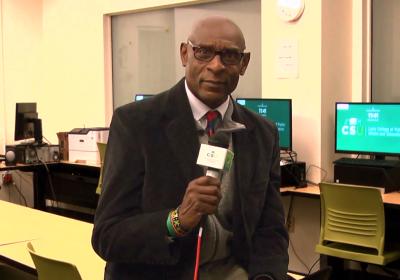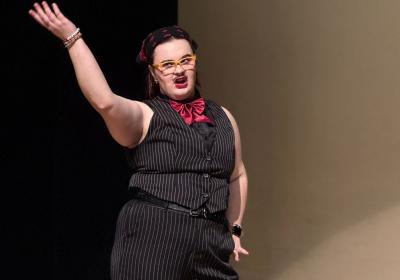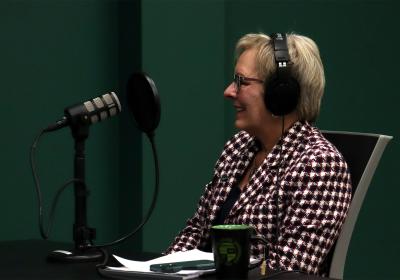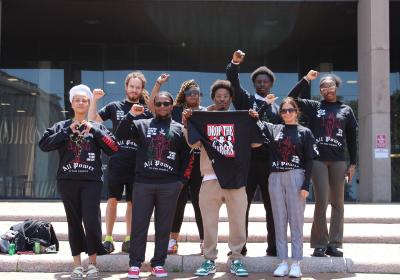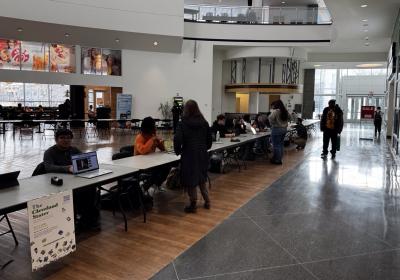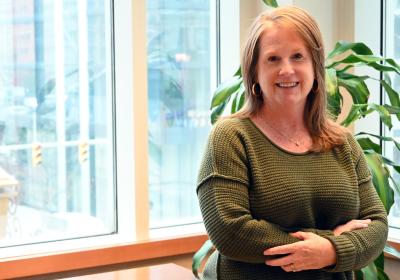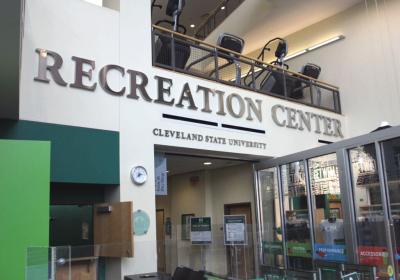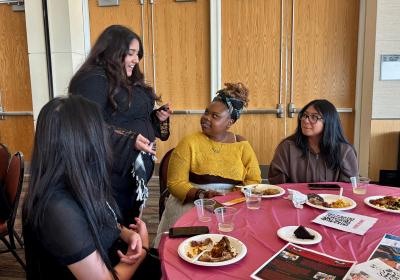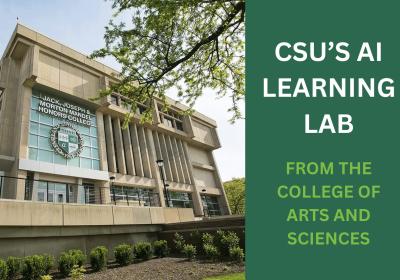Bloomberg speaks about the future of the university
CSU’s President, Laura Bloomberg, Ph.D., on April 4 sat down with The Cleveland Stater's Editor-in-Chief Josh Witcher and spoke about the university's challenges, student success, and how her experience being a finalist for the University of Minnesota presidency may have affected the community at CSU.
Enrollment Rates
Notre Dame College’s recent closing has raised a concern that the future of regional universities like CSU is unclear. That point has come home to Cleveland State in recent months with a vengeance as the university faces shrinking enrollments and a ballooning deficit
“I think it’s painful, but important to point out that that will not be unique,” Dr. Bloomberg said of Notre Dame's collapse. “That is happening all over the country.”
When asked about why enrollment is slowing down, a main reason cited for Notre Dame’s closing, President Bloomberg said there were, “about a dozen” or more reasons. Birth rates slowing, which means fewer college age adults, is one of those reasons.
As one part of a plan to raise CSU’s own enrollment rates, the university has agreed to take on qualifying Notre Dame students who need to finish their degrees. She said these transfer students would have “a higher or heightened level of advising and support.” Also, these students can expect most of their transfer credits to be accepted.
Bloomberg also pointed to changes at the high school level which are affecting colleges. She said that the traditional assumption that the number of graduating high school seniors would elect to enter college is “not proving true in this country right now.”
While declining college enrollments are a national trend, Bloomberg noted that larger universities that have higher standards will fare fine, as they need only lower those standards to allow more students in. But small urban and regional institutions will be affected much more severely.
On April 3, the day after she spoke with The Cleveland Stater, President Bloomberg announced at a CSU faculty senate meeting a plan to offer “voluntary separation incentive packages” to faculty and staff, as part of the administration’s need to shrink and, eventually, eliminate the ballooning budget deficit.
CSU is required by law to balance the budget, which currently has a deficit in the range $20 million, but was projected to grow to $40 million by 2029, if no changes were made to the existing revenue and expenditure model.
University of Minnesota
President Bloomberg said that she was disappointed, on some level, about not being offered the position of president of the University of Minnesota's (UMN).
“Well, everybody knows about this,” Bloomberg said. “So I just have to, you know, come to terms with that. But ultimately, coming in a very close second on a split vote was a validation of my capacity to lead.”
The news of President Bloomberg’s selection in the Presidential search at UMN came as a surprise to many at CSU, with Bloomberg, at the time, only having been at Cleveland State less than two years.
Did her pursuit of the UMN position affect her credibility with the CSU community?“I just can’t apologize if anybody thinks that they’ve lost faith in me, I can’t change that," Bloomberg said. "And candidly, (it's) not my problem.”
Student Success
Student success at Cleveland State is important, as it is at all universities. Bloomberg said that the development of the Division of Student Belonging and Success in September 2023, proves the university is committed to ensuring its students are successful.
“We can talk a lot about recruiting students,” Bloomberg said. “But to me, that is nowhere near as important as taking care of the needs and supporting the needs of the students who are here.”
President Bloomberg said that it was too early to really tell if the division is a success, but that it is “going in the right direction.” There may be some future transitions, and some bumpiness to them.
CSU’s impact on the city of Cleveland
Cleveland State University, established in 1964 and opened in 1965 after acquiring Fenn College, has become an important part of the city of Cleveland. As such, the university interacts with the local community and the city itself.
“I want it to be strong all across campus where I make a distinction personally as an educator is that my core focus is on the interests and needs and wants of our students. That’s primary,” Bloomberg said. She said the needs of local employers had to be seen in that context. "It's not that I don’t care about what employers need, it’s just that that’s not my primary focus.”
Bloomberg said that CSU was doing a “really strong job” with connecting to the area immediately surrounding the campus. She added that the university’s partnership with Playhouse Square, for example, “creates opportunities” for both theater and music.
President Bloomberg also expressed interest in partnering with other businesses like Sherwin-Williams and Parker-Hannafin.
Final statement
When asked for a final remark, President Bloomberg spoke about how important she considers communicating with the student body at CSU to be.
“I learn from our students every day,” Dr. Bloomberg said. “And I’m grateful for that. And I’m eager for the end of year celebrations in the coming weeks.”

